By 2030, the healthcare industry will face a shortage of 10 million health workers, according to WHO. That’s a staggering gap—but one that machine learning (ML) can help bridge.
Machine learning is a type of artificial intelligence that enables systems to analyze vast datasets, detect patterns, and make decisions with minimal human input. Instead of following programmed instructions, ML algorithms learn from data to uncover insights that humans might miss. In healthcare, where mountains of data are generated every second—from electronic health records to medical imaging—this capability is invaluable.
As we progress through 2025, machine learning is set to move beyond pilot projects to enterprise-level adoption. Read on and discover how global healthcare leaders are integrating ML into their core technology strategies this year.

Benefits of Machine Learning Applications in Healthcare
Machine learning is unlocking new possibilities in healthcare, enabling more accurate diagnoses, personalized treatments, and efficient care delivery. Here’s how its advantages are shaping the future of the industry:
1. Quick Data Collection
IoT-connected medical devices in healthcare gather real-time data, and machine learning processes this information rapidly. By analyzing these data streams, machine learning identifies trends and adapts them in real time, enabling timely interventions.
For instance, wearable devices can monitor heart rates or glucose levels and use ML algorithms to provide instant alerts for anomalies. The FDA has also approved multiple AI-powered medical devices, demonstrating their importance in modern healthcare.
2. Cost-Efficient Processes
Machine learning enhances the speed and efficiency of healthcare operations, cutting unnecessary costs. By automating tasks such as scanning electronic health records, managing schedules, and organizing patient data, machine learning minimizes human errors and saves significant time.
Repetitive administrative processes, like billing or appointment scheduling, benefit greatly from automation driven by ML. With fewer manual tasks, healthcare organizations can allocate resources more effectively, reducing operational expenses and improving the overall patient experience.
3. Enhanced Diagnosis Accuracy
Machine learning algorithms analyze medical images and patient data with unmatched precision, aiding early detection of diseases. These algorithms excel in identifying patterns and anomalies that may go unnoticed by human clinicians, especially in rare or complex cases.
For example, machine learning tools can detect cancer in its early stages from imaging scans, supporting better prognosis and higher survival rates. And the good news is: AI-powered diagnostic tools, such as deep learning models, have been approved for use in radiology, dermatology, and pathology.
4. Improved decision-making
Machine learning enhances clinical decision-making by analyzing vast datasets to identify patterns and predict outcomes. For instance, ML algorithms can forecast patient satisfaction, safety, quality of care, and efficiency, providing healthcare providers with actionable insights to improve care delivery.
Additionally, ML models can predict clinically relevant events, such as patient deterioration or response to treatments, enabling timely interventions. By integrating these predictive models into clinical workflows, healthcare professionals can make more informed decisions, ultimately improving patient outcomes.
10 Use Cases of Machine Learning in Healthcare
Machine learning applications in healthcare are transforming healthcare by powering innovative tools and technologies that enhance patient care and streamline medical processes. Let’s explore ten remarkable use cases that highlight its potential in real-world applications.
1. Accurate Diagnostics and High-Risk Patient Identification
Machine learning improves medical diagnostics by analyzing patient health data to identify abnormalities and patterns that clinicians may miss. By processing personal health information (PHI), machine learning systems can classify patients into risk categories based on detected conditions, enabling quicker interventions for high-risk individuals.

This capability is crucial for addressing critical conditions like sepsis or heart disease, where early detection can save lives. Machine learning allows healthcare providers to prioritize resources for those at the greatest risk, improving overall patient outcomes.
2. Medical Imaging Diagnosis
Medical imaging, such as X-rays, CT scans, and MRIs, often requires precise attention to detail, making it prone to human error. Machine learning algorithms can identify even the smallest abnormalities, such as lesions or tumors, enhancing diagnostic accuracy and reducing oversight.
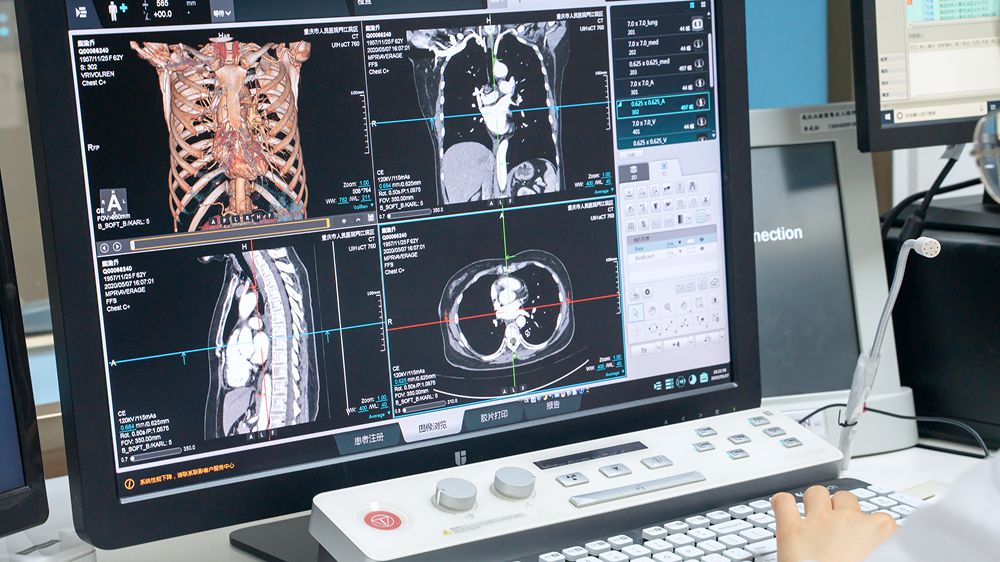
Tools like Microsoft’s InnerEye utilize machine learning to analyze imaging data more efficiently, supporting radiologists in faster and more accurate disease detection. As the technology evolves, machine learning will integrate more diverse imaging data to revolutionize diagnostics further.
3. Personalized Medicine
Personalized medicine uses machine learning to create tailored treatment plans by combining individual health data with predictive analytics. ML systems analyze a patient’s medical history, genetic information, and symptoms to suggest the most effective therapies.

IBM Watson Oncology, for instance, uses machine learning to recommend customized cancer treatment options. As wearable devices and biosensors collect more detailed health data, machine learning will enable even greater precision in personalized care.
4. Drug Discovery and Manufacturing
Drug discovery is traditionally a time-intensive and costly process. Machine learning accelerates this by analyzing massive datasets to identify potential drug candidates, predict clinical outcomes, and explore new uses for existing medications.

For example, Microsoft’s Project Hanover applies machine learning to develop personalized drug combinations for conditions like acute myeloid leukemia (AML). By minimizing trial durations and optimizing compound testing, machine learning reduces costs and speeds up the delivery of life-saving treatments.
5. Machine Learning-Based Behavioral Modification
Machine learning empowers preventive healthcare by analyzing behavior patterns and offering actionable insights for healthier lifestyles. Applications like the Somatic app monitor daily activities, such as hand gestures, to identify habits like smoking or overeating. By recognizing these unconscious behaviors, machine learning encourages users to make positive changes, reducing the risk of chronic diseases.
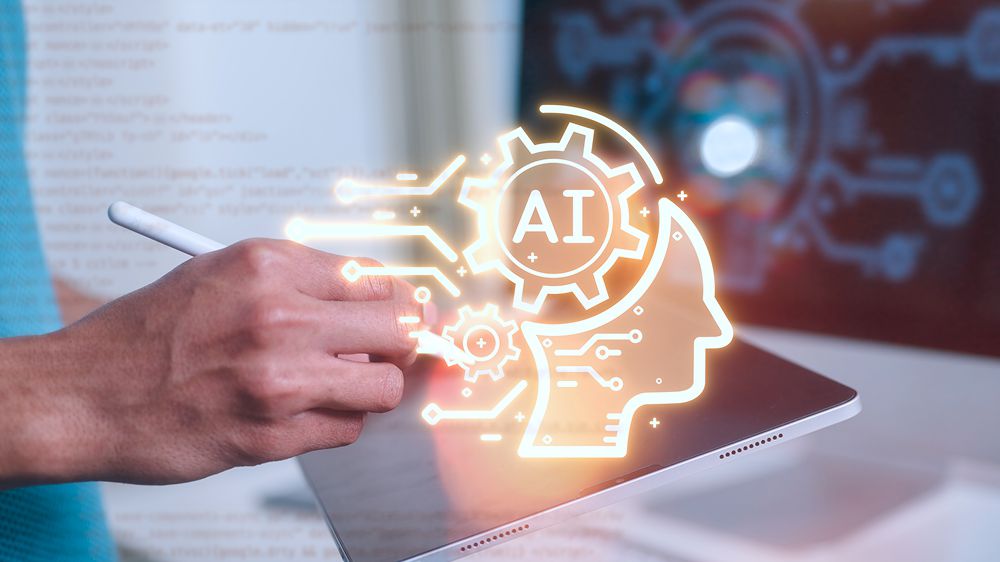
Data collected by machine learning systems enables personalized feedback tailored to each individual. For instance, wearable devices can track activity levels and suggest adjustments to improve overall health. This approach fosters long-term behavioral changes and promotes preventive care at scale.
6. Smart Health Records
Health records often require extensive manual effort, leading to inefficiencies and errors. Machine learning simplifies the process by using tools like Google’s Cloud Vision API and MATLAB’s handwriting recognition to digitize and classify medical documents accurately. These methods significantly reduce the time spent on administrative tasks.

Smart health records integrated with machine learning provide real-time clinical decision support. For example, predictive algorithms can analyze patient histories to suggest diagnoses or treatments, improving the efficiency and quality of care. Such advancements save time, reduce human errors, and enhance operational workflows in healthcare.
7. Clinical Trial and Research Optimization
Clinical trials are time-intensive and costly endeavors that can take years to complete. Machine learning optimizes the process by identifying suitable trial candidates from diverse datasets, including electronic health records and social media activity. This capability broadens the pool of participants and accelerates recruitment.

Machine learning also improves trial efficiency by monitoring participants in real-time and predicting outcomes. For example, predictive analytics can estimate the success of a trial or identify the best sample sizes, helping researchers save time and resources while ensuring reliable results.
8. Robot-Assisted Surgery
Robotic surgery systems equipped with machine learning algorithms enhance precision and safety during complex procedures. These systems can analyze patient data to guide surgical tools with extreme accuracy, minimizing damage to surrounding tissues and reducing recovery time.
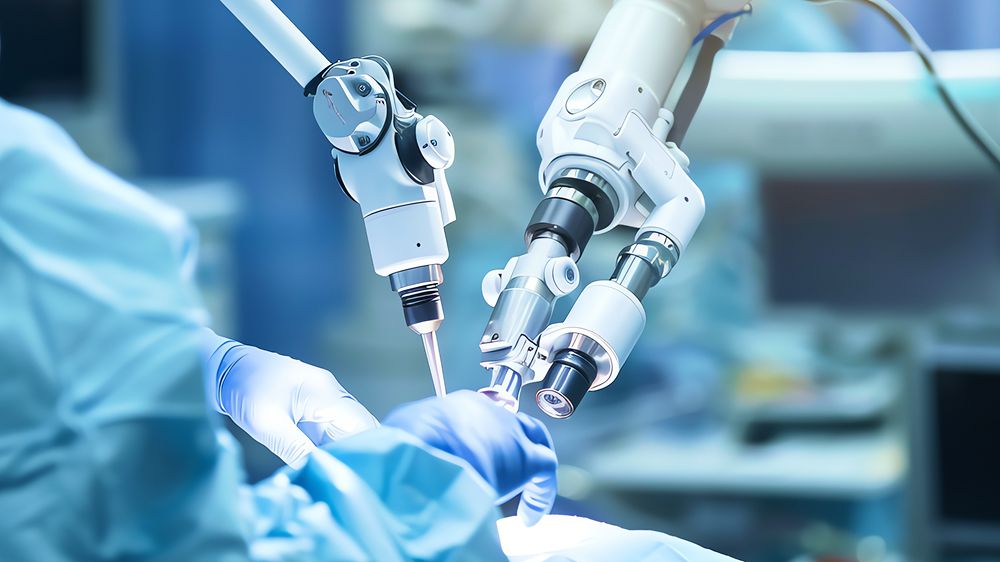
Machine learning improves robotic capabilities by learning from previous surgeries to refine techniques. For example, robotic assistants can assist in delicate procedures, such as neurosurgery or heart valve repair, where precision is critical. The integration of these systems alleviates the workload of surgeons while improving patient outcomes.
9. Virtual Nursing
Virtual nurses powered by machine learning enhance patient care by offering around-the-clock assistance. These AI-driven avatars handle tasks like appointment scheduling, medication reminders, and post-discharge care, ensuring continuous support for patients outside of clinical settings.
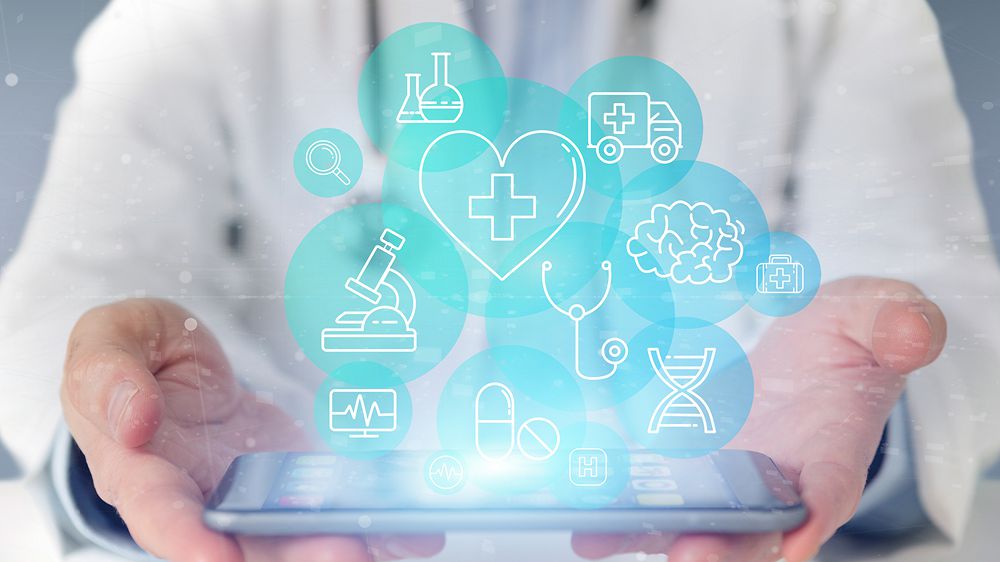
Machine learning enables virtual nurses to respond intelligently to patient inquiries and monitor chronic conditions. For instance, virtual nursing systems can track symptoms and alert healthcare providers in case of deterioration. This proactive approach improves patient engagement and ensures timely interventions when needed.
10. Hospital Management Optimization
Hospitals face increasing challenges in managing resources and operations efficiently. Machine learning streamlines hospital management by optimizing staff scheduling, inventory control, and compliance monitoring. For example, algorithms can analyze patient admission trends to ensure appropriate staffing levels during peak hours.

Machine learning also improves supply chain management by predicting demand for essential medical supplies and reducing wastage. By automating administrative processes, healthcare facilities can allocate resources more effectively, resulting in cost savings and improved patient care.
Challenges of Machine Learning Applications in Healthcare
Although machine learning holds significant promise for transforming healthcare, it is essential to address the challenges and risks involved in its implementation:
1. Algorithmic Bias
Machine learning models rely on large datasets for training, but biases in these datasets can have severe consequences in healthcare. For example, if a dataset underrepresents certain demographics, the algorithm might produce inaccurate predictions for those groups, potentially leading to misdiagnosis or unequal access to care.
Biases often stem from human oversight during model training and are unintentionally amplified by machine learning systems. In healthcare, such biases can exacerbate health disparities, highlighting the need for rigorous oversight and diverse datasets to ensure fair and accurate outcomes.
2. Lack of Data
Machine learning applications in healthcare require clean, structured, and comprehensive data, which remains a significant challenge in healthcare. Data from different organizations often vary in format and quality, making it difficult to train models effectively.
Many healthcare providers encounter obstacles in sharing patient data because of privacy regulations and incompatible systems. The absence of standardized and interoperable data formats creates significant barriers for training effective machine learning models, ultimately reducing their potential to improve patient outcomes.
3. Lack of Strategy
Adopting machine learning often disrupts traditional healthcare workflows, requiring organizations to rethink their processes. Without a clear implementation strategy, integrating machine learning can lead to resistance among staff and fragmented adoption.
Healthcare organizations need a cohesive approach that aligns technical advancements with operational changes. Cross-departmental collaboration and leadership support are essential to maximize the long-term benefits of machine learning.
4.Limited In-House Expertise
Implementing machine learning applications in healthcare demands a rare combination of technical proficiency and medical expertise. Many startups lack clinical input during development, while experienced healthcare professionals often have limited understanding of machine learning technologies.
This gap can result in poorly designed solutions that fail to meet real-world needs. Successful integration requires multidisciplinary teams of engineers and clinicians who collaborate to create tools tailored to healthcare environments.
To bridge the gap between technical proficiency and clinical expertise, KMS Healthcare’s Backlog Acceleration service can enhance your team’s capabilities without increasing in-house headcount.

5. Privacy Concerns
Healthcare data contains sensitive patient information, making data privacy and security paramount. Machine learning models require access to large volumes of patient data, raising concerns about potential breaches and unauthorized use.
To address this challenge, organizations must implement stringent security measures, including encryption, secure storage, and compliance with regulations like HIPAA. Partnering with experienced machine learning developers who prioritize data protection is critical to safeguarding patient privacy while leveraging the technology.
Unlock Machine Learning Potentials with the Right Development Partner
As healthcare organizations continue to explore the transformative potential of machine learning, the focus must remain on scalable, patient-centric solutions that enhance operational efficiency, improve diagnostic accuracy, and support personalized care. At KMS Healthcare, our expert teams bring over 15 years of healthtech experience to design and implement machine learning applications tailored to healthcare’s unique challenges, including predictive analytics, intelligent automation, and personalized treatment pathways.
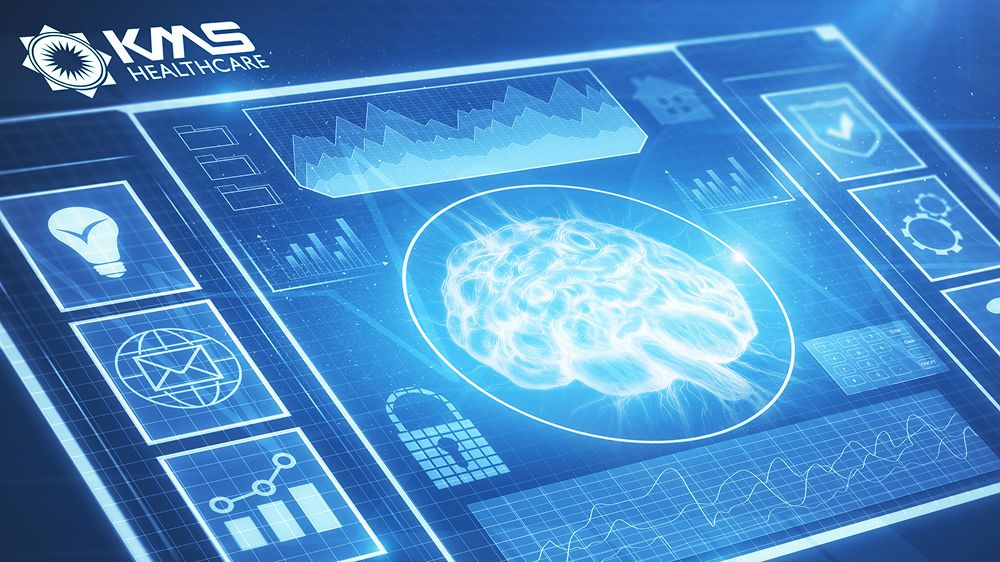
By leveraging machine learning’s ability to process real-time data from IoT-connected devices, enhance medical imaging analysis, and optimize clinical trial management, we help healthcare providers deliver faster, more accurate care while reducing operational costs. Our solutions meet the highest compliance and security standards, ensuring patient data is safeguarded at every step.
Machine learning is no longer a future concept; it is a transformative tool that drives smarter, more effective care delivery today. Partner with KMS Healthcare to accelerate your digital transformation and create lasting value for your organization, patients, and stakeholders.